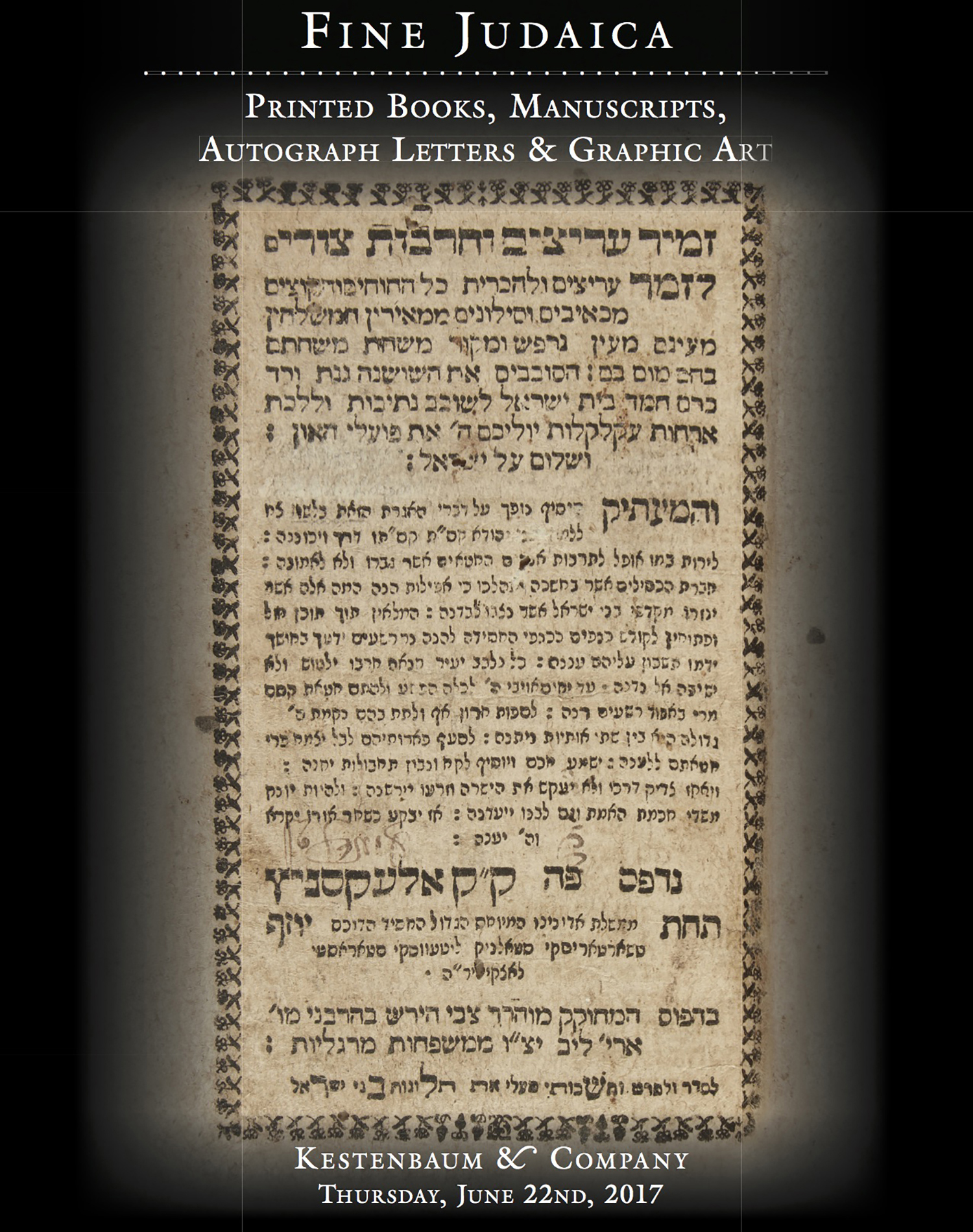(R. Yoseph HaTanna). (Kabbalah).

AUCTION 73 |
Thursday, June 22nd,
2017 at 1:00
Fine Judaica: Printed Books, Manuscripts, Autograph Letters & Graphic Art
Lot 265
ASCHKENAZI, YOSEPH OF SAFED
(R. Yoseph HaTanna). (Kabbalah).
(Safed): Late 17th century
Est: $4,000 - $6,000
PRICE REALIZED $4,000
Discovery of a passage reading "Amar Yoseph min Tzefath Hakothev" led the late expert in medieval Jewish manuscripts, Rabbi Moshe Yehudah Hakohen Blau to surmise that this is an autograph manuscript of the kabbalist R. Yoseph Aschkenazi of Safed (1525-77) (his notes accompany the lot) - however this assumption has yet to be firmly substantiated.
Son-in-law of R. Aaron b. Gershon Land of Posen, R. Yoseph, who settled in Safed was referred to as "R. Yoseph the Tanna" on account of his critical commentary to the Mishnah.
The first portion of the present manuscript is devoted to instructions how to compose kame’oth (amulets) utilizing various Divine as well as angelic names. This is followed by practical medical cures and instructions on the "she’elath chalom" or question posed before retiring for the night (properly recited, the formula allows for the query to be answered in dream-form that night).
Also included in the manuscript are treatises such as Shimush Tehilim, which employs each of the Psalms magically, followed by Alpha Betha, esoteric formulae arranged alphabetically. Materials relating to the Divine names, originate with the medieval Kabbalist Isaac of Acre quoting from a "Sepher Rimon." One amulet is ascribed to MaHaRI"B, evidently R. Jacob Beirav, one of the great luminaries of Safed. One of the oddities of the manuscript is that on several occasions Latin characters are incorporated into the mystical formulae (see the final two leaves). There is also a smattering of Lurianic Kabbalah of a purely theoretical nature, "kabbalah iyunith," as opposed to "kabbalah ma’asith," (practical kabbalah) which is the bulk of our manuscript. It includes the AR”I’s Derush HaMa’akeh, Derush HaTzelem and other less well known derushim of AR"I that were eventually incorporated into R. Chaim Vital’s magnum opus Etz Chaim.
